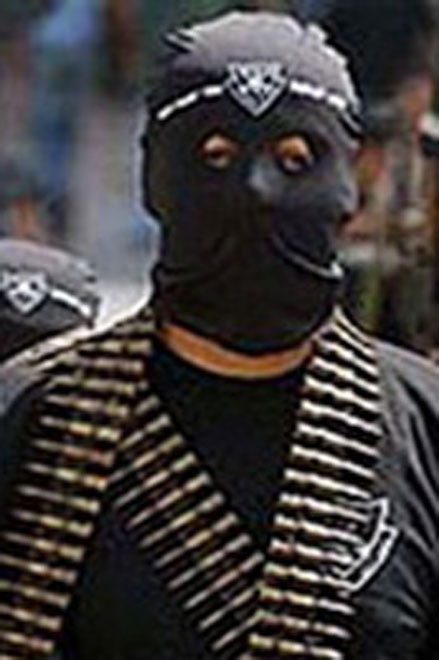Al-Qaida-linked militants freed an ailing Italian Red Cross worker Sunday from six months of jungle captivity in the southern Philippines, officials said, Reuters reported.
Eugenio Vagni, 63, appeared to be in good health but tired as Abu Sayyaf gunmen handed him over to a provincial vice governor shortly after midnight in jungle near Maimbung township on southern Jolo Island, officials said.
In Vatican City, Pope Benedict XVI felt relieved that the abduction was over and took Vagni's release as a "sign of hope and of faith," Vatican spokesman the Rev. Federico Lombardi was quoted as saying by the Italian news agency ANSA.
Lombardi said others held by kidnappers in various conflict zones in the world must not be forgotten and "we hope that similar, unacceptable violence is not repeated."
"He was weak but obviously very happy to have regained his freedom," marine Col. Eugenio Clemen told The Associated Press by telephone from Jolo.
Vagni, who had difficulty walking because of a hernia, embraced military officers at a Jolo military camp muttering "thank you" repeatedly, said Clemen, who helped oversee rescue operations for Vagni. He was given coffee and noodles and examined by doctors at a trauma hospital in the camp before going to sleep.
TV footage showed Vagni, who had lost weight and grown a beard, smiling and waving to well-wishers and soldiers at the hospital. "I love them all," Vagni said.
"I'm very elated that the ordeal is over for Vagni," said Sen. Richard Gordon, who heads the Philippine Red Cross. "It's been six months of constant fear of gunbattles, of being ordered around, of being held away from his wife and children."
Vagni's brother, Francesco, told reporters in Italy that "there were moments that I believed he would never come back." The two brothers spoke by phone, ANSA reported.
Italian Foreign Minister Franco Frattini said in an interview with Italian state TV that no ransom had been paid for Vagni's release. There has been speculation that a large ransom was paid to the kidnappers.
Gordon said that Sulu Vice Gov. Lady Ann Sahidulla was asked by the militants to escort Vagni to safety and that she "donated" 50,000 pesos ($1,041) to an intermediary, but he stressed this was not a ransom.
The kidnappers were also pressured by the recent arrests of the two wives of Abu Sayyaf commander Albader Parad, who held Vagni, Clemen said. It was not immediately clear if the women have been released in exchange for Vagni's freedom.
Vagni was later flown to southern Zamboanga city, where Philippine Defense Secretary Gilberto Teodoro and armed forces chief of staff Gen. Victor Ibrado will turn him over to representatives of the International Committee of the Red Cross.
"Skillful negotiations and incessant pressure by relentless operations by members of the security forces won the release of Vagni," Philippine marine spokesman Lt. Col. Edgard Arevalo said.
He said the offensive against the Abu Sayyaf will continue.
Frattini also expressed gratitude that no government attacks were necessary to free the hostage.
The aid worker, who suffers from hypertension and a hernia, was kidnapped along with two Red Cross colleagues after inspecting a Jolo jail water project Jan. 15.
The Swiss and the Filipino hostages had been freed earlier by the militants, but the Abu Sayyaf held on to Vagni for months, entering into on-and-off negotiations for his release while government troops maintained military pressure on the gunmen.
The Abu Sayyaf, which has about 400 fighters, is on the U.S. list of terrorist organizations because its bombings, ransom kidnappings and beheadings of hostages have rattled the southern Philippines for decades. The group is suspected of receiving funds and training from al-Qaida.
The group and its allies have turned to kidnappings to make money in recent years, raising concerns among Philippine and U.S. security officials that ransom payments could revive the group, which has been weakened by years of U.S.-backed military offensives.






